Going to the dentist is an essential part of a preventive healthcare routine. Still, making time for appointments amidst a busy schedule can also be inconvenient and stressful. One of the most common questions people ask when booking an exam or cleaning is, “How long will it take?”
The length of a dental appointment depends on various factors, such as the type of exam and your oral health concerns, but an average appointment takes around 1 hour. This time is well spent, as regular checkups can help you avoid complications and more invasive procedures down the road, like root canals.
What Types of Dental Exams Are There?
Dentists offer various examinations based on your unique health needs. There are 4 different types of dental exams offered at Shin Dentistry:
- Comprehensive exam
- Limited exam
- Emergency exam
- Recall exam
Comprehensive Dental Exams
A comprehensive dental exam is akin to a complete health checkup but for your oral health—encompassing teeth, gums, and jaw. It involves a thorough and detailed evaluation of your oral health, cancer screening, bite assessment, and evaluation of the teeth, tissue, gums, palate, and tongue. They may also take X-rays to search for teeth, mouth, and jaw issues and photographs of your teeth and gums.
This exam provides a comprehensive understanding of your dental health and helps identify potential problems early on. If you’re a new patient, your first appointment will likely be a comprehensive exam so your dentist can get a complete picture of your current oral health. It usually includes a new patient intake, which takes 30–40 minutes.
Limited Dental Exams
Limited dental exams focus on specific, non-emergency issues, such as a toothache, unusual sensitivity, a cracked tooth, or other minor conditions. In such cases, your dentist will focus on the affected site rather than perform a full-mouth evaluation.
Emergency Dental Exams
Emergencies are unpredictable and, sometimes, painful. An emergency dental exam is typically performed when you experience a sudden, unexpected dental situation that requires immediate care. From tooth or jaw pain that prevents you from eating or sleeping to knocked-out teeth or broken braces, your dentist is there to provide urgent care and support.
Recall Exam
A recall exam occurs every 6 months. It’s usually paired with a cleaning, and allows your dentist to monitor your oral health between comprehensive dental exams. Since our teeth endure a lot throughout the year, these routine visits are crucial for identifying and addressing potential problems early.
Dental Exam vs. Dental Cleaning
People often refer to their regular visits to the dentist as “checkups,” but there are differences between an exam and a cleaning.
A dental cleaning usually happens before the exam. It’s performed by a dental hygienist who cleans your teeth and gums. Experts recommend brushing and flossing at home to remove plaque and harmful bacteria. However, plaque can eventually harden into tartar, which brushing can’t remove.
Your dental hygienist has the tools to scrape away plaque and tartar buildup from your teeth, floss them, and polish them with gritty toothpaste to create smooth surfaces bacteria can’t grip to. They may also suggest a fluoride treatment to provide additional protection against gum disease and support for healthy teeth and gums.
A dental exam takes a closer look at your oral health. A dentist will examine your mouth, teeth, and gums visually and using imaging technology. During an exam, your dentist may:
- Take X-rays of your teeth and jaw
- Ask about your dental history
- Perform an oral cancer screening
- Ask about temperature sensitivities
- Look for signs of grinding or clenching
- Check your jaw for problems with your temporomandibular joint (TMJ)

How Often Should I Get a Checkup?
The Ontario Dental Association recommends seeing your dentist at least once a year. But that’s only the minimum. Depending on your circumstances, your dentist may recommend you visit more often. For instance, your dentist might advise more frequent visits if you battle serious tooth decay or gum disease.
These regular checkups are not just about treating existing problems but also about preventing future ones. They’re an opportunity to nip dental issues in the bud before they escalate into significant concerns.
In many cases, dental problems develop slowly. A tiny cavity may not cause discomfort initially, but it can grow and become a painful nuisance over time. A minor gum inflammation might initially seem harmless, but it can lead to gum disease if left untreated. The key lies in early detection and intervention.
Your Time Well Spent
An hour a couple of times a year doesn’t seem so bad when considering everything a dental appointment can do for you. Times can vary depending on whether extra treatment options are necessary, such as fillings or extractions, or if multiple consultations occur in a single appointment.If it’s been a while since your last dental appointment, you may need to plan for a longer appointment and follow-ups. But our Shin Dentistry team is here to help. Book your next appointment today!



